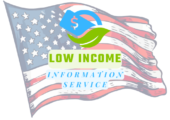Low Income Relief
Understanding Low Income Relief
Strategies For Managing Low Income
Government Programs For Low Income Individuals
Tips For Saving Money On Basic Needs
Introduction:
Navigating life on a low income can be incredibly challenging, often leaving individuals feeling overwhelmed and struggling to make ends meet. However, it’s important to remember that there are resources and strategies available to help you manage your finances and improve your situation. In this blog post, we will explore the concept of low income relief, offering valuable insights into understanding the challenges it presents. Additionally, we will discuss practical strategies for managing a low income, including budgeting techniques and lifestyle adjustments. Furthermore, we will shed light on government programs designed to support individuals with low incomes and provide essential tips for saving money on basic needs. Whether you are personally experiencing financial constraints or seeking information to help someone you know, this comprehensive guide aims to provide you with the tools and knowledge needed to navigate low income living successfully.
Understanding Low Income Relief
Low income relief is a solution designed to help individuals and families who are struggling to make ends meet due to limited financial resources. It provides assistance in various forms, including financial aid, government programs, and support services. The goal of low income relief is to alleviate the financial burden and improve the quality of life for those in need.
One strategy for managing low income is to create a budget and stick to it. This involves tracking income and expenses, prioritizing essential needs, and finding ways to cut down on non-essential spending. By having a clear understanding of where money is going, individuals can make better financial decisions and stretch their limited income further.
Government programs play a crucial role in providing assistance to low-income individuals. These can include programs such as SNAP (Supplemental Nutrition Assistance Program), Medicaid, housing assistance, and energy assistance. These programs are aimed at helping individuals access basic necessities such as food, healthcare, housing, and utilities. It is important to stay informed about the eligibility criteria and application process for these programs to make the most of the assistance available.
| Category | Tips |
|---|---|
| Groceries | Use coupons, buy in bulk, and plan meals to reduce food costs. |
| Utilities | Unplug electronic devices when not in use and adjust thermostat settings to save on energy bills. |
| Housing | Consider downsizing or exploring low-income housing options to reduce housing expenses. |
| Transportation | Utilize public transportation or carpooling to cut down on transportation expenses. |
In conclusion, understanding low income relief and utilizing strategies to manage it effectively can greatly improve the financial situation of individuals and families in need. By taking advantage of government programs and implementing money-saving tips, the burden of low income can be alleviated, allowing individuals to thrive and have a better quality of life.
Strategies For Managing Low Income
Living on a low income can present various financial challenges, but with careful planning and effective strategies, it is possible to manage your finances more efficiently. Making small changes and adopting smart money-saving methods can significantly impact your overall financial well-being. In this blog post, we will explore some effective strategies that can help you manage your low income more effectively.
Create a Budget:
One of the foremost steps in managing low income is creating a budget. A budget allows you to have a clear understanding of your income and expenses. Start by listing all your sources of income, including wages, benefits, and any other financial support. Next, make a detailed list of your fixed expenses such as rent, utilities, and insurance. Identifying discretionary expenses like eating out or entertainment is also important. By tracking your spending and allocating your income according to your needs, you can gain better control over your finances.
Save and Prioritize:
While it may seem challenging to save money on a low income, it is an essential strategy to ensure financial stability. Begin by analyzing your expenses to identify areas where you can cut back. By distinguishing between wants and needs, you can prioritize necessary expenses and redirect your savings towards an emergency fund. Look for ways to reduce utility bills, such as turning off lights when not in use or adjusting your thermostat. Additionally, consider alternatives to costly activities like taking up free hobbies or utilizing local resources like libraries and community centers.
Utilize Government Programs:
Government programs exist to provide assistance to low-income individuals and families. These programs aim to alleviate financial burdens by offering benefits such as food assistance, healthcare subsidies, and housing support. Take the time to research and understand the eligibility criteria for these programs. Applying for the appropriate programs can provide a significant boost to your budget and help cover essential expenses. Organizations like Low Income Relief offer valuable resources and information on available programs and how to apply for them.
Invest in Personal Development:
While managing a low income can be challenging, investing in personal development and education can set the foundation for long-term financial growth. Consider exploring free or low-cost educational opportunities that can enhance your skills and increase your employability. This could range from online courses and certifications to workshops provided by local community organizations. By investing in yourself, you can improve your prospects for better job opportunities and higher income in the future.
Managing low income requires a combination of discipline, resourcefulness, and proactive decision-making. By creating a budget, saving and prioritizing, utilizing government programs, and investing in personal development, you can effectively manage your finances and work towards a more stable future.
Government Programs For Low Income Individuals
Low income individuals and families often face a multitude of challenges when it comes to meeting their basic needs. However, numerous government programs have been designed to provide assistance and support to those who are struggling financially. These programs aim to alleviate the burden of poverty and offer a helping hand to individuals in need. Understanding and accessing these programs can make a significant difference in the lives of low income individuals and families.
One important government program that plays a crucial role in assisting low income individuals is the Supplemental Nutrition Assistance Program (SNAP). Formerly known as food stamps, SNAP provides eligible participants with a specific amount of funds to purchase nutritious food for themselves and their families. This program helps ensure that individuals have access to adequate nutrition, promoting their overall well-being and health. The funds provided through SNAP are loaded onto an Electronic Benefits Transfer (EBT) card, which can be used at authorized retailers to purchase eligible food items.
Another influential government program is the Low Income Home Energy Assistance Program (LIHEAP), which assists low income households in paying their energy bills. LIHEAP provides financial assistance to eligible individuals to help cover the costs of heating or cooling their homes. This program is especially crucial during extreme weather conditions, as it ensures that individuals can safely maintain a comfortable living environment. LIHEAP helps reduce energy insecurity and prevents individuals from facing utility shut-offs or living in unsafe conditions.
| Program | Description |
|---|---|
| Supplemental Nutrition Assistance Program (SNAP) | Provides funds to purchase nutritious food |
| Low Income Home Energy Assistance Program (LIHEAP) | Financial assistance for energy bills |
Additionally, the Medicaid program offers health coverage to low income individuals and families who are unable to afford private health insurance. Medicaid provides access to essential medical services, including doctor visits, hospital stays, prescription medications, and preventive care. This program ensures that individuals do not face barriers in receiving adequate healthcare due to financial constraints. Medicaid eligibility varies by state, so it is important to familiarize oneself with the specific requirements in their state of residence.
These are just a few examples of the government programs available to support low income individuals. It is important for those in need to thoroughly research and understand the criteria and application processes for these programs. In addition to the programs mentioned above, there are numerous other initiatives that provide assistance with housing, education, child care, and more.
Tips For Saving Money On Basic Needs
Living on a low income can present many challenges, but there are ways to make your budget stretch further and save money on your basic needs. Whether you are struggling to cover the cost of food, housing, or utilities, implementing these money-saving tips can help ease the financial burden.
1. Create a budget: Start by assessing your income and expenses. This will give you a clear understanding of where your money is going and help you identify areas where you can cut back. Allocate a specific amount for each of your basic needs, such as groceries, rent, and utilities, and stick to it.
2. Plan your meals: Meal planning is an effective way to save money on groceries. Before heading to the store, make a list of the items you need and stick to it. Consider buying in bulk and opting for store-brand products, as they are often more affordable. Additionally, cooking meals at home instead of eating out can save you a significant amount of money.
3. Save on utilities: Lowering your utility bills can make a big difference in your monthly expenses. Take steps to conserve energy, such as turning off lights when not in use, using energy-efficient appliances, and adjusting your thermostat to save on heating and cooling costs. Consider exploring government assistance programs that may offer discounts or subsidies for low-income individuals.
4. Optimize transportation costs: Transportation can be a major expense for many individuals. If possible, consider using public transportation or carpooling instead of relying on your own vehicle. Doing so can save you money on gas and parking fees. Additionally, regular vehicle maintenance and proper tire inflation can improve fuel efficiency and reduce overall costs.
5. Shop smart: When purchasing essential items, compare prices and look for sales or discounts. Consider buying generic brands, as they are often cheaper and can be just as good as name brands. Avoid impulse purchases and only buy what you need. It may also be beneficial to explore local thrift stores or online platforms for discounted clothing and household items.
| Expense | Money-Saving Tip |
|---|---|
| Groceries | Meal plan, buy in bulk, and opt for store-brand products. |
| Housing | Lower utility bills by conserving energy and exploring assistance programs. |
| Transportation | Use public transportation, carpool, maintain your vehicle, and compare gas prices. |
| Shopping | Compare prices, buy generic brands, avoid impulse purchases, and consider thrifting. |
Frequently Asked Questions
1. What is low income relief and how can it help individuals in need?
Low income relief refers to programs, resources, and strategies designed to assist individuals and families with limited financial resources. It can aid in reducing financial burdens by providing benefits such as housing assistance, healthcare coverage, and access to affordable food options.
2. What are some effective strategies for managing a low income?
Managing a low income requires careful budgeting and prioritization of essential expenses. Some effective strategies include creating a monthly budget, cutting unnecessary expenses, seeking financial assistance programs, and exploring opportunities for additional income through part-time work or side gigs.
3. What government programs are available to support low income individuals?
Several government programs exist to offer support to low income individuals. These include programs like Temporary Assistance for Needy Families (TANF), Supplemental Nutrition Assistance Program (SNAP), Medicaid, Low-Income Home Energy Assistance Program (LIHEAP), and Section 8 Housing Vouchers.
4. How can individuals save money on basic needs despite having a low income?
Despite limited income, individuals can save money on basic needs by adopting various strategies. These may include shopping wisely by comparing prices and using coupons, cooking meals at home instead of eating out, purchasing generic or discounted products, and exploring community resources such as food banks and thrift stores.
5. Can low income individuals access healthcare services at an affordable cost?
Yes, low income individuals can often access healthcare services at an affordable cost through programs like Medicaid or the Children’s Health Insurance Program (CHIP). Additionally, many states offer free or low-cost clinics, and some pharmaceutical companies provide assistance programs for discounted or free medications.
6. Are there any grants or scholarships available for low income individuals to pursue education?
Yes, there are grants and scholarships available specifically for low income individuals to pursue education. These include the Federal Pell Grant, Federal Supplemental Educational Opportunity Grant (FSEOG), and various state-specific grants. Additionally, universities and colleges often offer need-based scholarships or financial aid packages.
7. How can low income individuals access affordable housing options?
Low income individuals can access affordable housing options through government programs like Section 8 Housing Vouchers or public housing. Non-profit organizations may also offer affordable housing initiatives. It is advisable to contact local housing authorities or community agencies to explore available options in a specific area.



